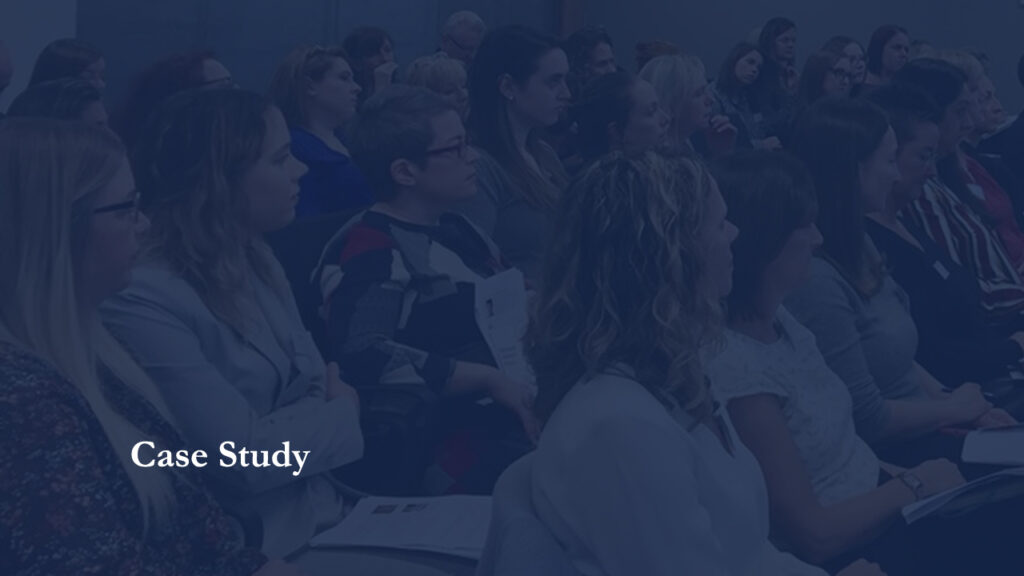Problem:
An established professional organisation of nearly 500 members sought to improve their culture. All practitioners in the field had to be accredited members of the organisation. In the light of a rapidly changing marketplace for talent, they sought to better reflect the needs and diversity of those now earning the necessary qualifications to become members.
Specific challenges:
- Suspected misogyny and toll on mental health were key issues.
- Anticipated lack of buy-in for culture change amongst the ‘establishment’ within this esteemed profession, noted for its tradition.
- Attracting members back into offices post-Covid, when individuals and their professions had adjusted well to remote working.
- As the organisation was not technically a members’ employer, they had limited scope to dictate and enforce the changes they suspected would need to be made
- Differing demographics between senior and junior members in assuming the culture would improve ‘in due course’ and with limited intervention.
- An internationally recognised brand facing vocal critics both within and external to the organisation.
- Recognition that students from under-represented backgrounds (female, BAME, socioeconomically disadvantaged backgrounds) in their sector were a majority in the requisite field, but were increasingly selecting roles in adjacent organisations to the exclusion of the membership organisation’s specialism.
Goal:
To modernise the organisation and make it attractive to existing and future members. The show clients and other external stakeholders the organisation’s commitment to inclusivity in an increasingly diverse society.
InclusIQ Support:
The client sought SDM out for an independent culture assessment leading to a practical report, recommendations and delivery plan. The assessment was based on over 100 individual and group interviews with board members, regular members, staff, clients and external stakeholders. SDM reviewed in-house data and utilised comparative data from other parts of the sector. She also considered the likely impact of improved inclusion based on modern data.
Opportunities:
- Leadership realised they had an opportunity to modernise their oft-criticised ‘public school boy’ image.
- Recognition from members that being on-site was best for their mental health and career development.
- All members of the organisation at all stages of their careers were engaged on how to improve.
- Atmosphere of public goodwill from external stakeholders, and even the most vocal of critics who believed the organisation could change.
- Internal appetite for each member to say their piece. Previously collected quantitative and comparative data would verify the ideas and opinions heard.
- A wide recognition that, without change, the organisation could potentially diminish the competitive advantages they held, risk their status as industry regulator, and increasingly be viewed as outdated.
Result:
The organisation’s leadership believed the compelling case laid out for modernisation as detailed by the report. This provided a strong base to silence any doubters. In the following months, they received a hugely positive response when asking for volunteers to work on four committees prioritising the recommendations on Diversity, Outreach, Well-Being and Governance.
After reading the report, the new volunteers for task forces responded with ‘lightning speed and unprecedented enthusiasm’ taking on the recommendations as described by the commissioning leader.
Given SDM arrived at a group that ranged from downright dubious and hostile to a minority who believed change necessary, she used her MCC coaching skills to get open answers from interviewees, who often remarked at the end of interviews: ‘I told you more than I thought I would’.
The following report was described by readers as a ‘healthy, and perhaps much-needed departure from our industry style,’ as well as ‘engaging and galvanising,’ as SDM had used quotes collected which made the issues recognisable, even when the speaker was not.
The organisation began making immediate changes via task forces.


